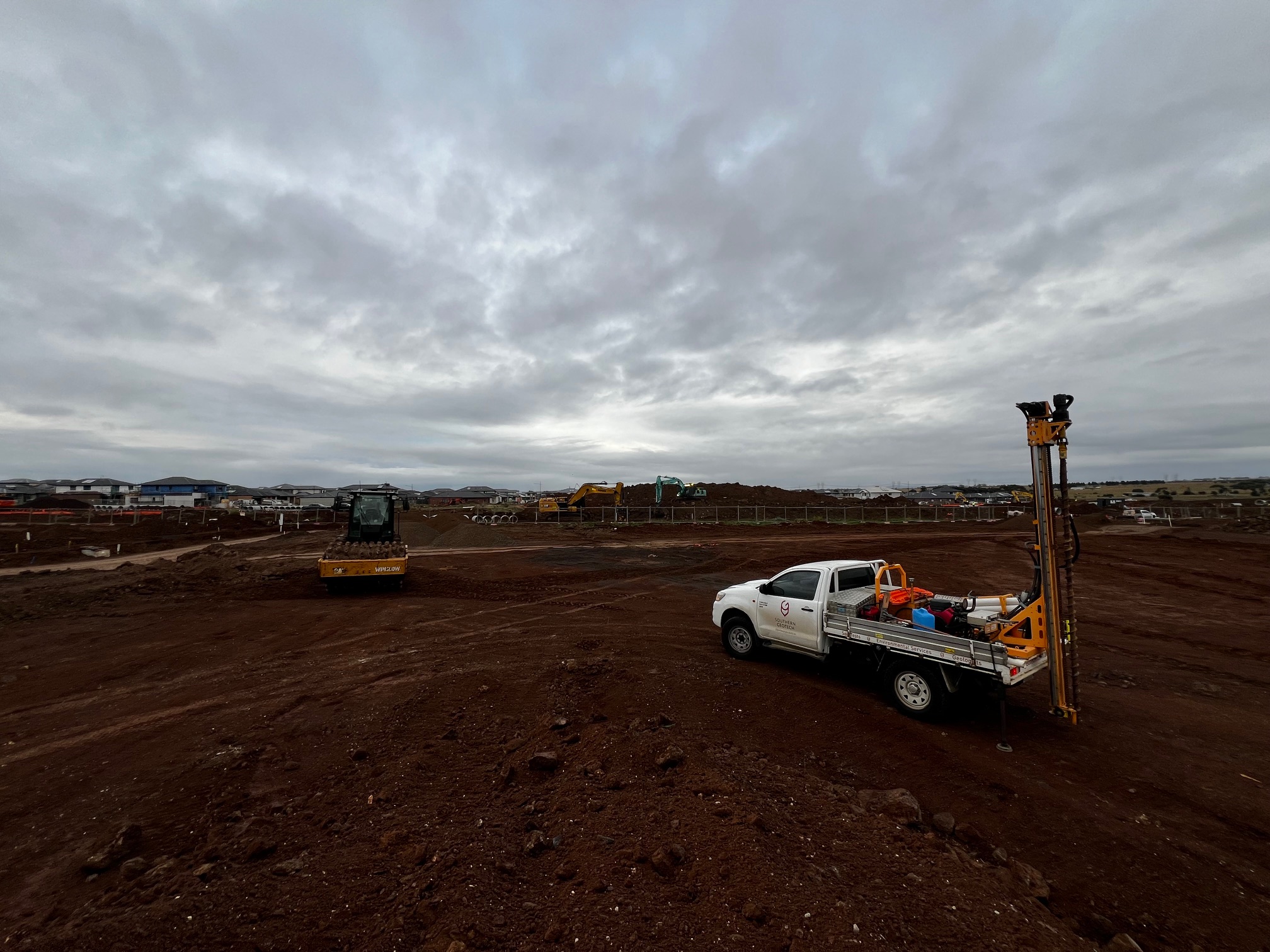When it comes to construction, whether you’re building a cozy home or a complex commercial facility, one of the first critical steps is to understand the ground beneath your project. The quality and type of soil can significantly impact the stability, durability, and safety of any structure. However, soil investigations for residential projects differ significantly from those for commercial developments.
Let’s explore why that is and what sets these two types of geotechnical investigations apart.
The Scope of Soil Testing: Residential vs. Commercial
Residential Soil Testing
For residential projects, which typically include houses, duplexes, or small-scale townhouses, soil investigations are focused primarily on ensuring the soil can safely support lighter structures. These tests often concentrate on surface conditions to confirm that the ground is suitable for the type of foundation required—whether it’s a concrete slab, piers, or other footing systems.
The key objectives for residential soil investigations include:
- Assessing soil stability and load-bearing capacity for lighter structures.
- Checking for the presence of expansive clay, which can cause foundation heaving.
- Ensuring adequate drainage and preventing potential moisture-related issues.
Commercial Soil Testing
In contrast, commercial and non-residential projects are on an entirely different scale. These projects often involve larger, heavier structures like warehouses, office buildings, hospitals, or sports facilities, which require a much deeper understanding of the subsurface conditions.
Geotechnical investigations for commercial sites go beyond just surface soil analysis. They often include:
- Deeper boreholes to assess soil conditions several meters below the surface.
- A significantly varied scope and recommendations based on the nature, size, and specific requirements of the commercial project.
- Differing geotechnical parameters, essential for evaluating the soil’s behaviour under loading conditions, which in turn influences foundation design, construction techniques, and project feasibility.
The goal is to ensure that the soil can handle the significant weight and stress these structures will exert over their lifespan. This comprehensive investigation is essential to prevent structural failures, which can be catastrophic in high-occupancy or critical-use buildings.
Why Commercial Soil Investigations Are More Comprehensive
Commercial projects encounter complexities that residential developments typically do not. Here are a few key reasons why commercial soil investigations are more thorough:
- Heavier Loads and Larger Structures: Buildings like factories, hospitals, and sports facilities place substantial weight on the soil. The investigation needs to ensure that the ground can support this load without excessive settlement or failure.
- Specialized Infrastructure: Projects such as telecommunications towers, retaining walls, or large paved areas require specific assessments to guarantee durability and stability over time.
- Long-term Safety and Compliance: Commercial projects must adhere to stringent safety regulations and building codes. A comprehensive geotechnical investigation helps identify potential soil issues early, allowing engineers to design appropriate foundations and mitigation measures.
Examples of Non-Residential Projects at Southern Geotech
At Southern Geotech, our experience spans a wide range of non-residential projects. Here’s a glimpse of the types of commercial soil investigations we undertake:
- Factories and Warehouses: Heavy industrial equipment and inventory storage require robust soil support.
- Commercial Structures & Shopfronts: Ensuring stability for foot traffic and multi-story designs.
- Retaining Walls: For sloped sites or where soil reinforcement is needed.
- Sports Field Infrastructure: Including netting systems, scoreboards, and lighting towers.
- Sporting Pavilions and Shelters: Often involve complex roofing and support structures.
- Lighting, Telecom, & Meteorological Towers: Tall structures with unique wind and load considerations.
- Pavement & CBR Investigations: For roads, parking lots, and walkways.
- Schools, Kindergartens & Daycare Facilities: Safety and stability are critical in areas with children.
- Hospitals, Medical & Aged Care Facilities: Special considerations for heavy medical equipment and emergency planning.
The Value of Geotechnical Reports in Commercial Construction
A thorough geotechnical investigation is more than just a box to check off for compliance; it’s a strategic investment that pays off by preventing costly setbacks during construction. Here’s how:
- Risk Mitigation: By identifying potential soil-related risks early on, geotechnical reports help developers implement solutions before problems escalate.
- Cost Efficiency: Proper planning and foundation design can save substantial costs down the line by avoiding issues like foundation failure, drainage problems, or unexpected soil settlement.
- Informed Decision-Making: Armed with detailed soil analysis, engineers can design structures that are both safe and cost-effective, leading to successful project outcomes.
In commercial construction, where projects are high-stakes and budgets are tightly managed, the value of a comprehensive geotechnical report cannot be overstated.
At Southern Geotech, our extensive experience across a diverse range of non-residential projects allows us to deliver geotechnical reports that are specifically tailored to your project’s unique needs. We combine in-depth soil analysis with practical recommendations, giving you insights you can build on to ensure the long-term success of your construction project.
Contact us today to learn how we can assist with your next commercial development and help you lay a solid foundation for a successful build.
Southern Geotech – Experience You Build On.


